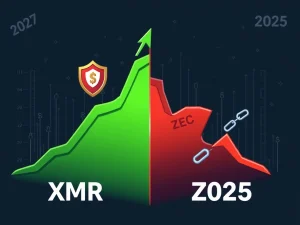Vitalik Buterin: Empowering Crypto Freedom Over Esoteric Tech

The crypto industry stands at a pivotal moment, balancing rapid growth with its foundational principles. Ethereum co-founder Vitalik Buterin recently delivered a powerful message at the EthCC event, urging developers to prioritize a crucial question: Is your technology truly freeing people?
Vitalik Buterin’s Call for Crypto Freedom
Addressing the blockchain community, Vitalik Buterin made a clear plea. He asked developers to shift their focus from merely building technically complex tools to creating inventions that genuinely enhance human liberty. Buterin drew a parallel between the early internet’s promise of individual freedom in the 1990s and the current landscape of blockchain and Web3.
He reminded the audience that early digital rights advocates championed an open internet, a vision he feels was ultimately lost in the Web2 era. Buterin characterized Web2 as a collection of “walled gardens” controlled by large corporations, many of which started with freedom-centric rhetoric but later became known for restrictive policies and censorship. He cautioned Web3 builders not to repeat this pattern, emphasizing the social and moral responsibility inherent in developing cryptographic tools.
Buterin’s message was direct: “People who are working on cryptography really need to more actively think of cryptography as something that has social and moral implications and something where you actually have to actively think about what the social and moral implications of the thing that you’re building are.” His key question for builders remains, “If you are building something, the first question to ask is: Are you making your users free?”
The Cypherpunk Roots of Decentralization
Freedom and individual liberty are central tenets of the cypherpunk movement. This group of software developers emerged in the 1980s, advocating for privacy and freedom through strong end-to-end encryption. They played a significant role in popularizing digital encryption, even as governments like the US National Security Agency (NSA) sought to restrict its use and export in the 1990s.
In the early days of Crypto, roughly from 2009 to 2021, cypherpunk ideals were deeply intertwined with the industry’s identity. Concepts like privacy, censorship resistance, building parallel systems outside traditional structures, and libertarian political theory were synonymous with early Bitcoin and crypto adoption. This foundation emphasized user sovereignty and resistance to centralized control.
Ethereum and the Balancing Act: Ethos vs. Growth
As the crypto sector has matured, driven partly by projects like Ethereum and the broader interest in digital assets, it has attracted significant attention from institutions. Corporations, banks, and even state officials are increasingly engaging with the space. This influx of traditional players has created a divide within the community.
Often dubbed “suitcoiners” by those who cherish the original anti-establishment spirit, these institutional actors represent a focus on growth, regulation, and integration into existing financial systems. This stands in contrast to the original cypherpunk vision focused purely on technical freedom and Decentralization. The tension highlights the industry’s current challenge: how to achieve mainstream adoption and growth without compromising the core principles of freedom and user empowerment that started it all.
Vitalik Buterin’s speech serves as a timely reminder that the technology itself is only a means to an end. The ultimate goal, according to Buterin and the original cypherpunk vision, is not just building complex systems, but building systems that empower individuals and contribute to a more free and open digital world. As Web3 evolves, the community must continually ask itself if it is staying true to this liberating mission.
Key Takeaways from Buterin’s EthCC Talk:
- Crypto development should prioritize user freedom and social impact.
- The Web2 era serves as a cautionary tale about the loss of early internet freedom.
- Developers must consider the social and moral implications of their work.
- The core question for builders: “Are you making your users free?”
- Maintaining the cypherpunk ethos is crucial amidst institutional growth.
The path forward for crypto involves navigating the complexities of growth while holding firm to the foundational ideals of liberty and decentralization. Buterin’s message at EthCC underscores the importance of this ongoing effort.










